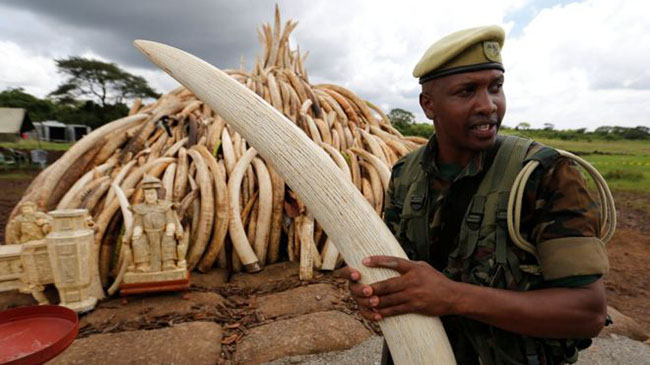Recently the Kenyan government has decided to burn huge quantities elephant tusks that they have confiscated over decades to send a strong message to the international ivory trade network. Although the symbolic gesture of the initiative is greatly appreciated; however, how much this will damage the trade network of elephant tusks used in the illegal ivory industries of China and South East Asia remains to be seen. The international illegal ivory trade network is a massive billion dollar industry with several major stakeholders including influential politicians and bureaucrats, forest guards and officers, wildlife traffickers, poachers, transporters and networkers operating across the continent of Asia and Africa with major head offices located in China and South East Asia. The ivory trade has huge investments and secret trading agents in all the major continents except Antarctica and Greenland. They guard this trade jealously and are often provided with secret political support in return for the share of the big booties generated through the illegal sale and smuggling of ivory products that includes jewellery, chopsticks, figurines, statues, paper knives, idols, miniature models, parts of artificial weaponry like handles of knives and swords, wall hangings, decorative pieces to mention only a few.
Hence, one could realize that simple burning of tusks will not be able to stop the international ivory network operating in elephant rich developing and under developed nations of Asia and Africa. While the conservation movement is being initiated across the globe, thousands of wild elephants in Asia and Africa are falling victims to the bullets of the poachers. The lucrative ivory markets of China and South East Asia have very high pull factor with constant demands for fresh elephant tusks to feed the hungry underground ivory industry. Under the present circumstances unless strong political will is involved and ivory trade is hit back by the general public by rejecting the ivory products, the mass slaughter of elephants could not be prevented.
Home » Opinion » Can Burning Elephant Tusks Help In Protecting African and Asiatic Elephants?
Can Burning Elephant Tusks Help In Protecting African and Asiatic Elephants?
| Saikat Kumar Basu

